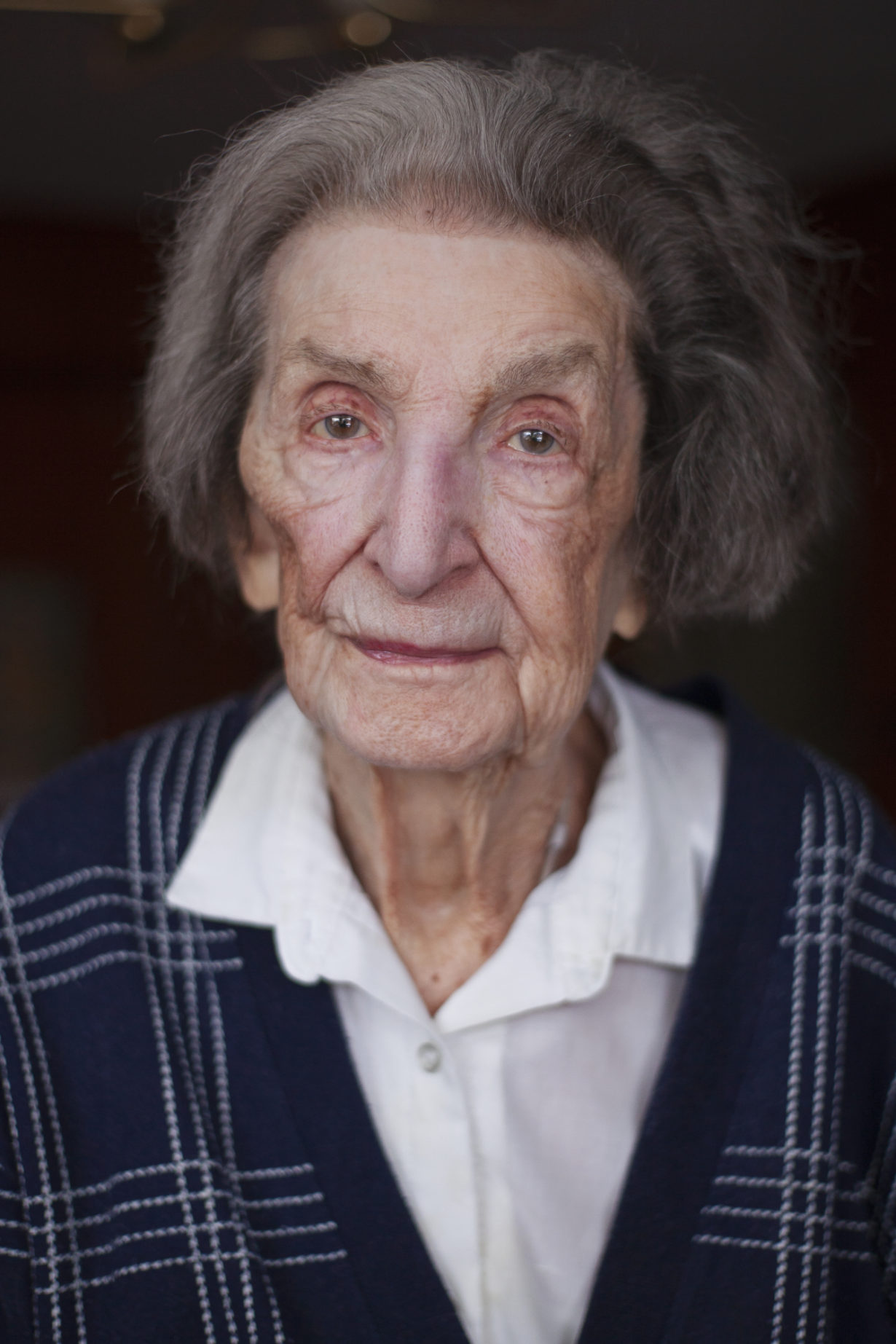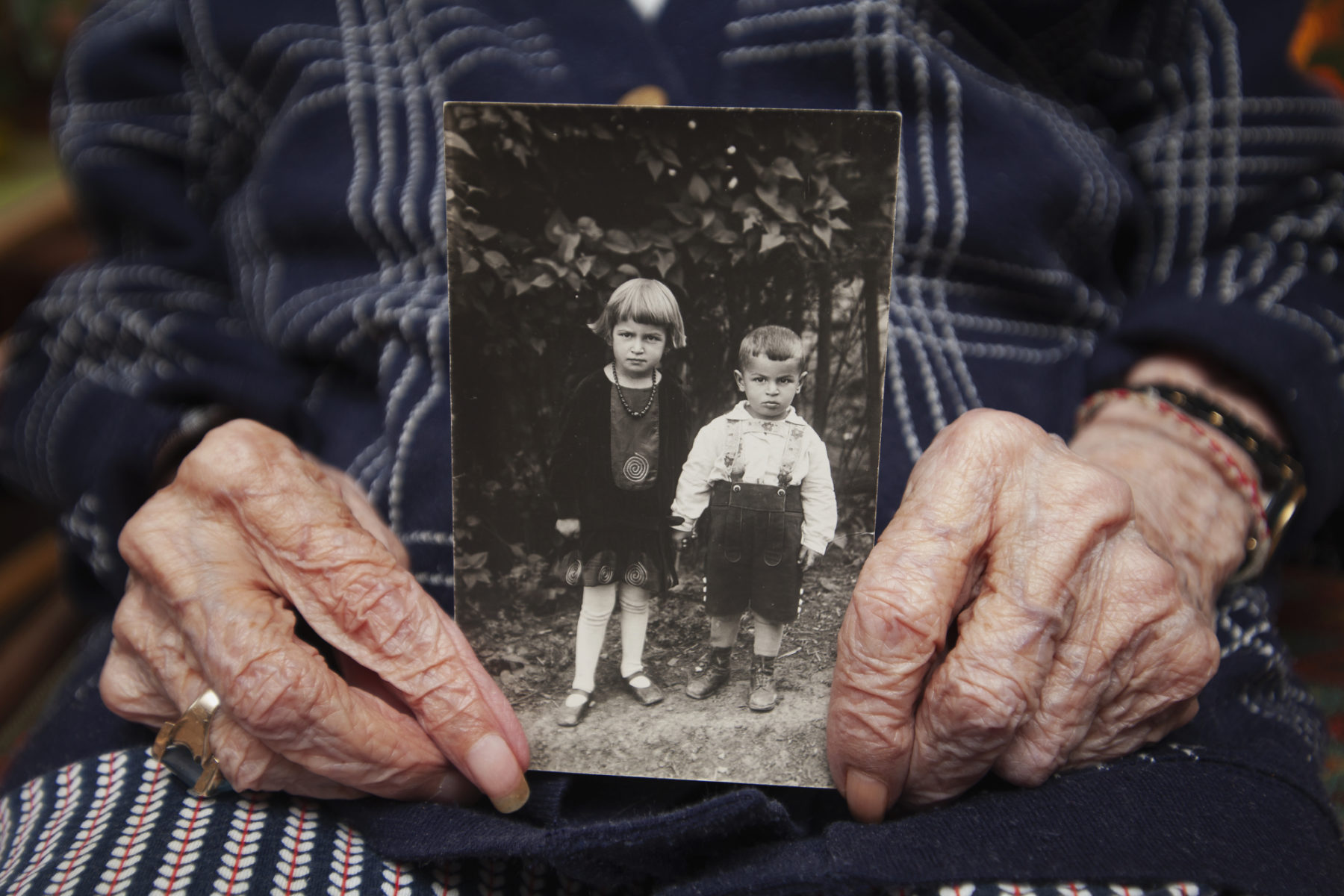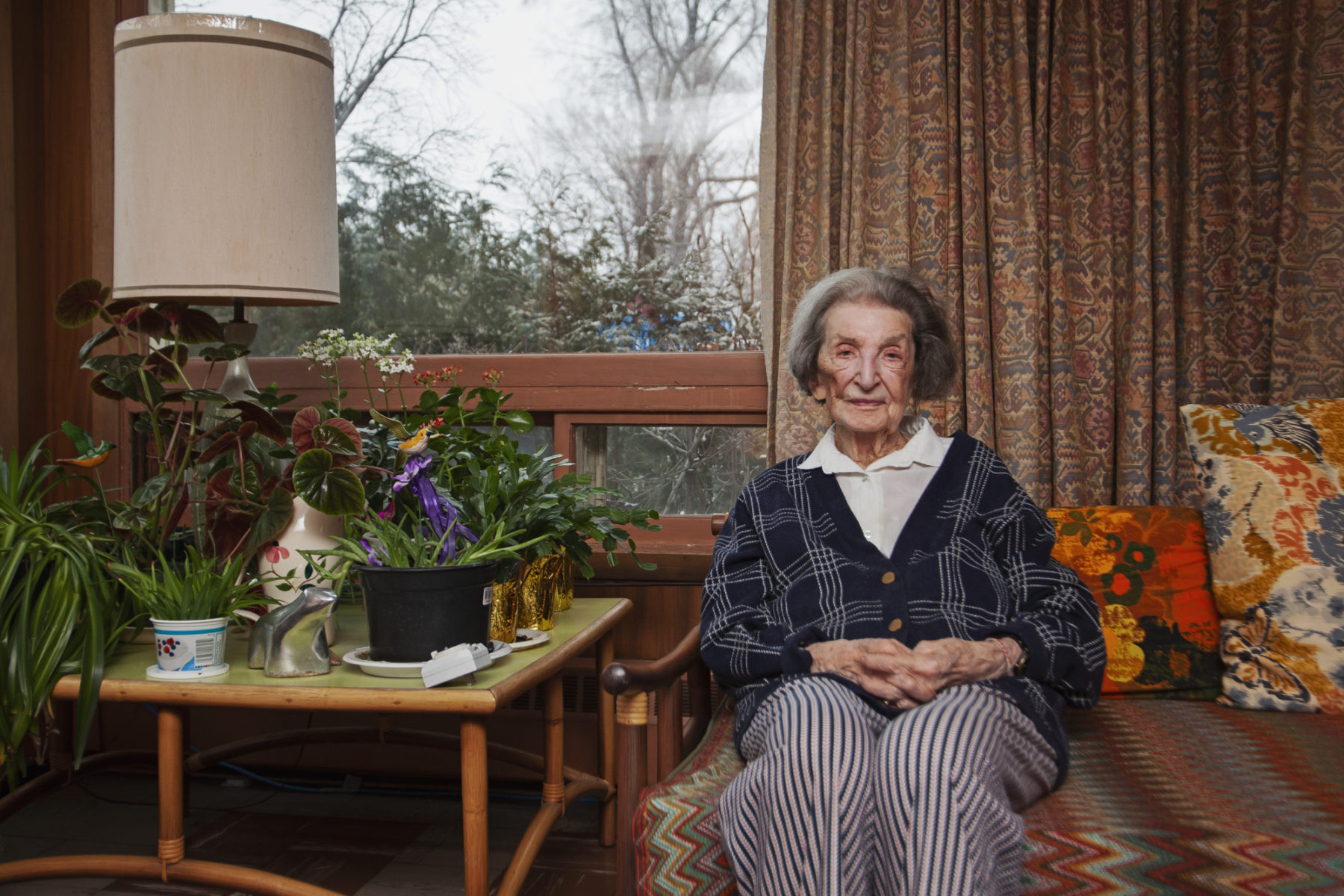
Liselotte Ivry
Liselotte and Hans
Liselotte Ivry still remembers the details related to the photograph she holds of her brother Hans and herself, which was taken around 1930 at a farmhouse in Listany (Czech Republic). She vividly recalls a grove of lilacs, a red necklace, and a brown velvet dress decorated with gold thread. This childhood image is part of an album of rare photos of deceased family members that her uncle carefully preserved throughout his life. After his death, Liselotte became its guardian.

Listen to the photograph's story
That’s my brother and me. He had nice blond hair.
Do you know where this was taken?
Yes. In a farmer’s backyard in the village of, in German it’s called Lichtenstein, in Czech it was called
Listany (today Czech Republic). It was in Western Bohemia. And these are lilac bushes.
Who took the picture?
That I don’t know. But I know that the necklace was red beads. And the dress was brown velvet, and it
had these gold things there.
Tell me what was the fate of your mother and your brother. Were you all deported together to
Theresienstadt? No.
My mother … my brother went with her, he didn’t want to let her go by herself.
So, they went before you did?
Yes, a month before.
And did you meet in camp?
Yes. My mother was working in a hospital, so was I but in a different one, and my brother, he was
working, they were making things out of wood, you know, he was working that. Then my mother was
called up to the transport east, and my brother came during the night to me, and he says that he thinks
he is going to go with her. So, he went with her to Auschwitz. And I came later. I went looking for my
mother, I found her, not in very good shape. She died on the fourth of January. And then I went to see
my brother, and I told him that mother died. He turned around and he walked away from me. So, came
the March transport and my brother was in the March transport, and they took the whole transport and
they killed them, all of them! On the seventh of March.
How do you have the photos?
My uncle. He had these pictures. He only went to a work camp because his wife was not Jewish, so he
was all the time at home, but he went to a work camp and that’s how he survived. When my son was six
years old, I decided I want to take him to Europe, so I went to Salzburg because my uncle and my aunt
stayed for the summer in Salzburg. And not very long after I came home, he passed away. So, the lawyer
phoned me and said that he passed away and there is some money, I suppose. I said, “I don’t want it.
But one thing I want is that album with photographs. And that’s what I want.” He says, “OK. You send
me ten dollars and I send you the album.” And that’s how I got it.


